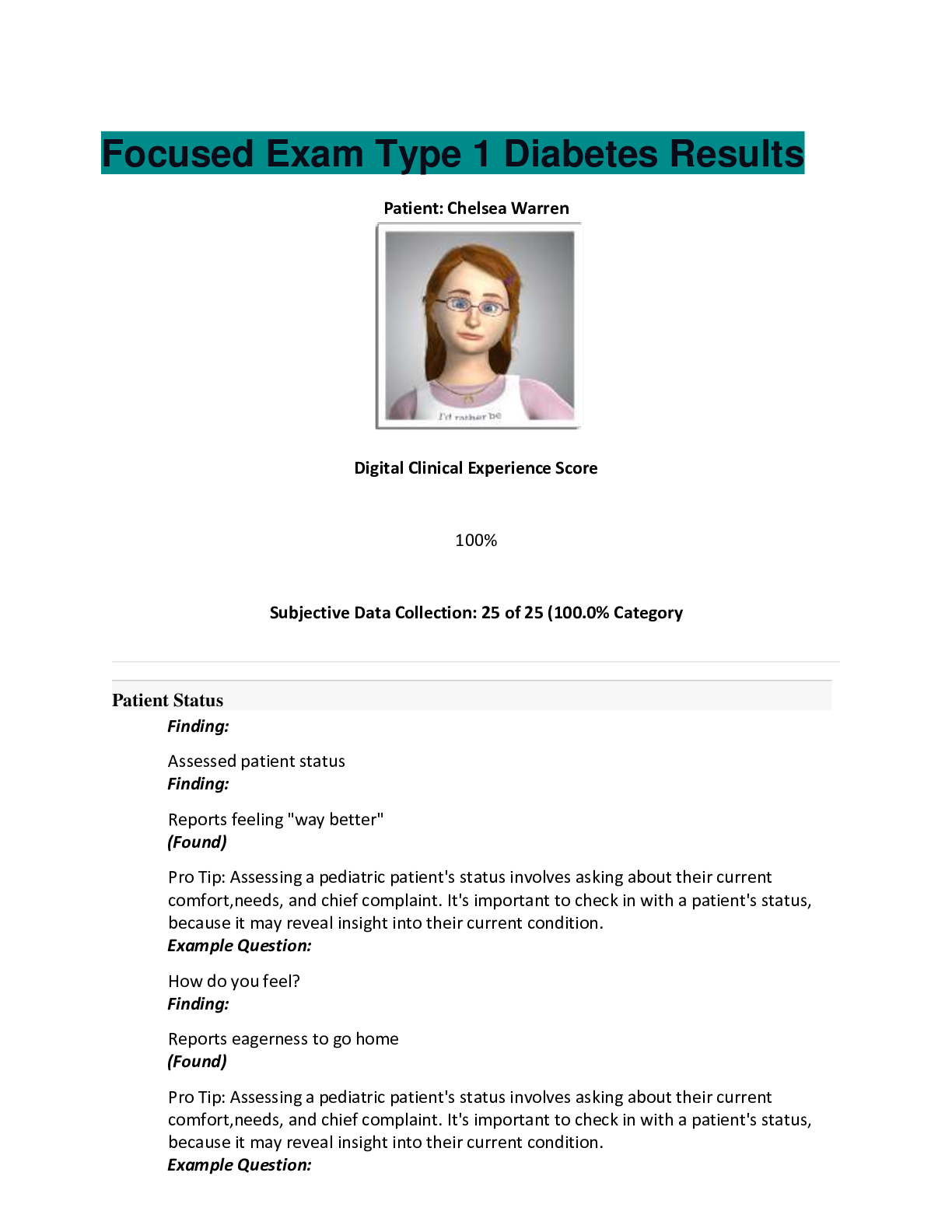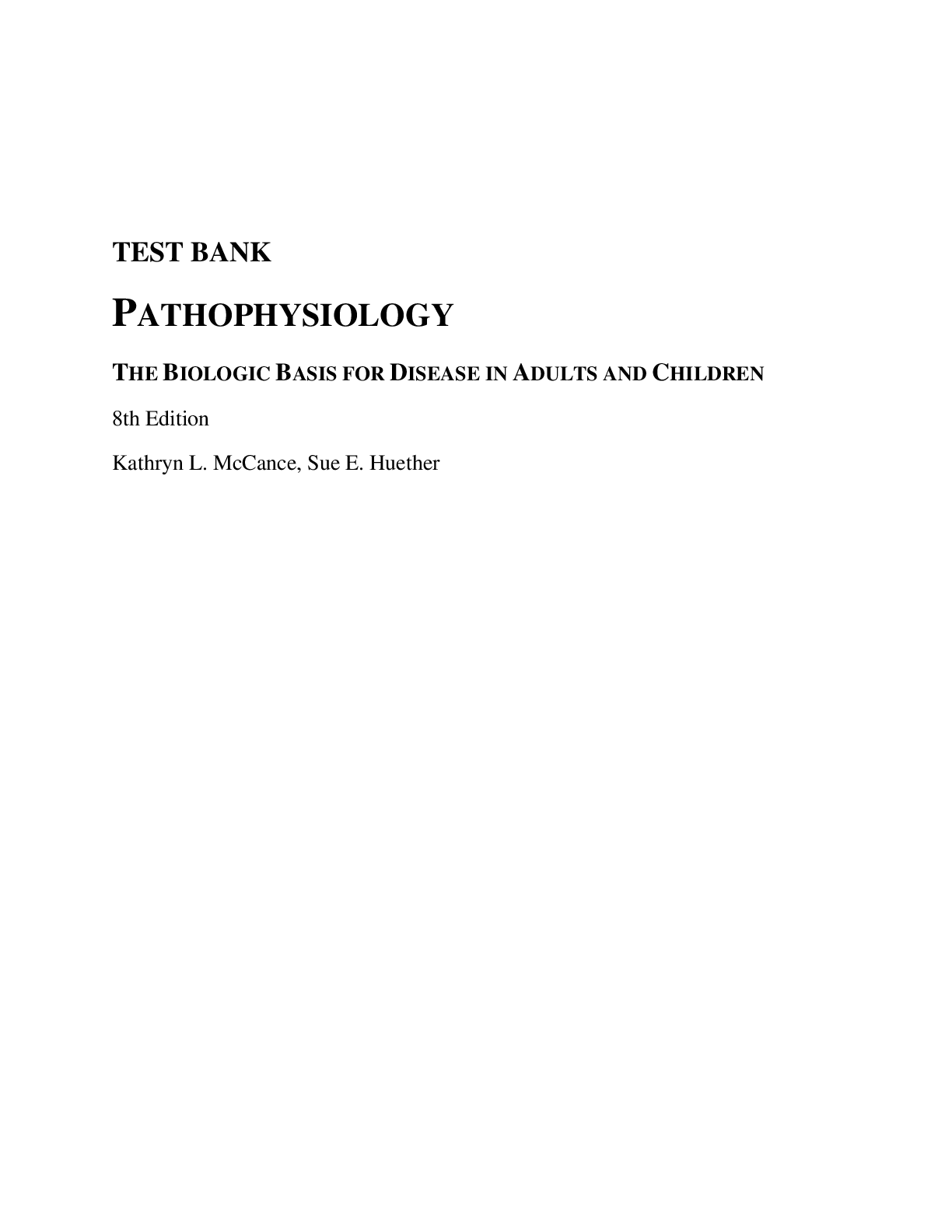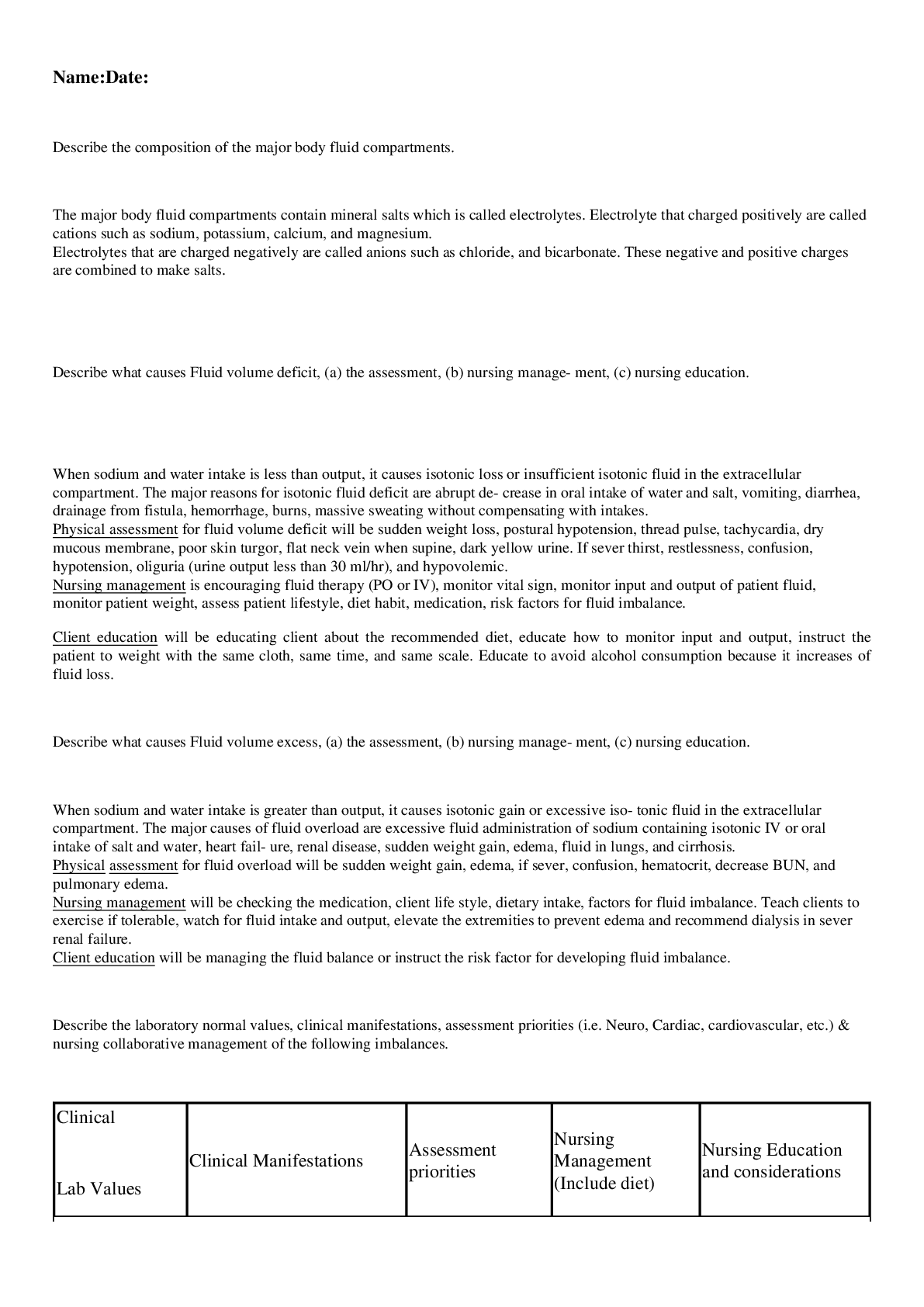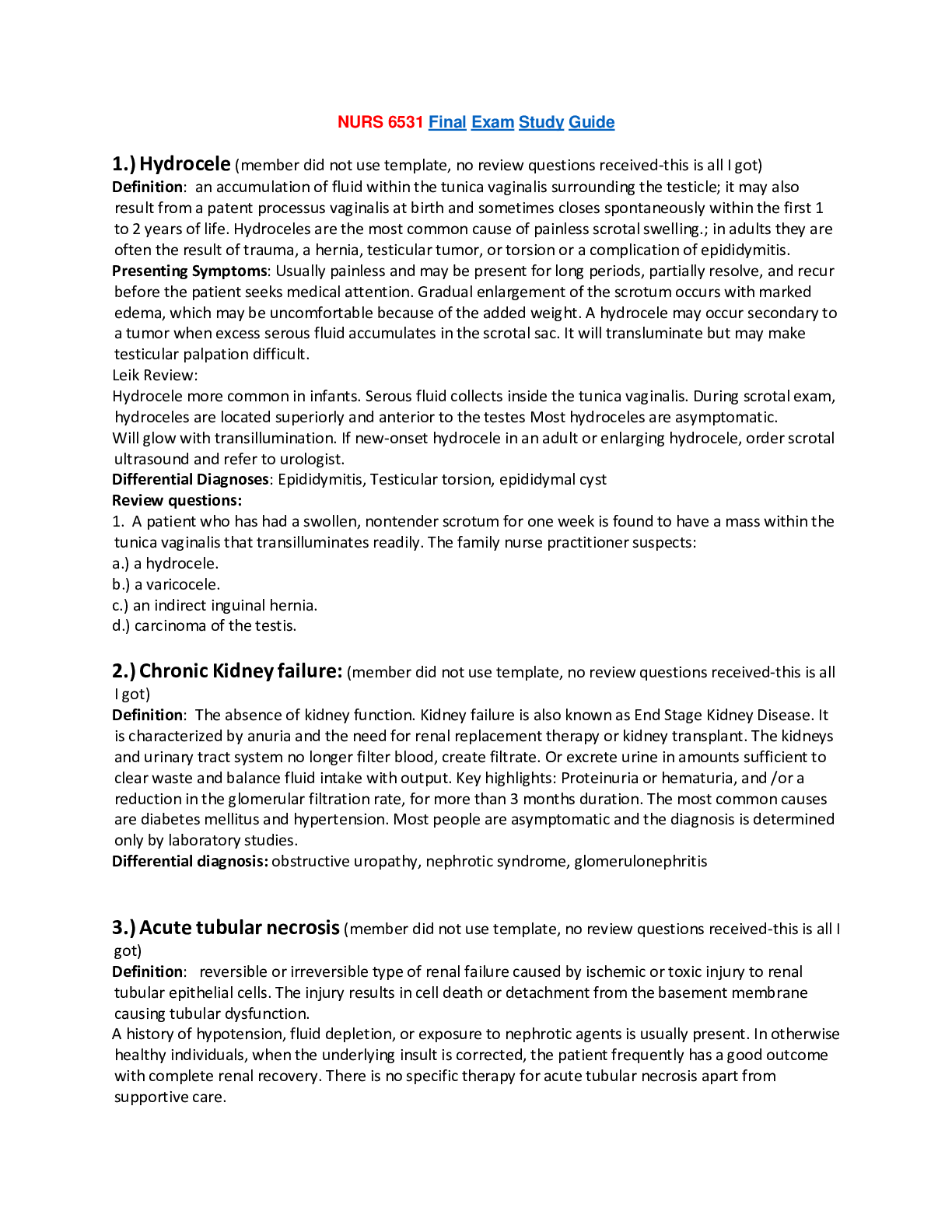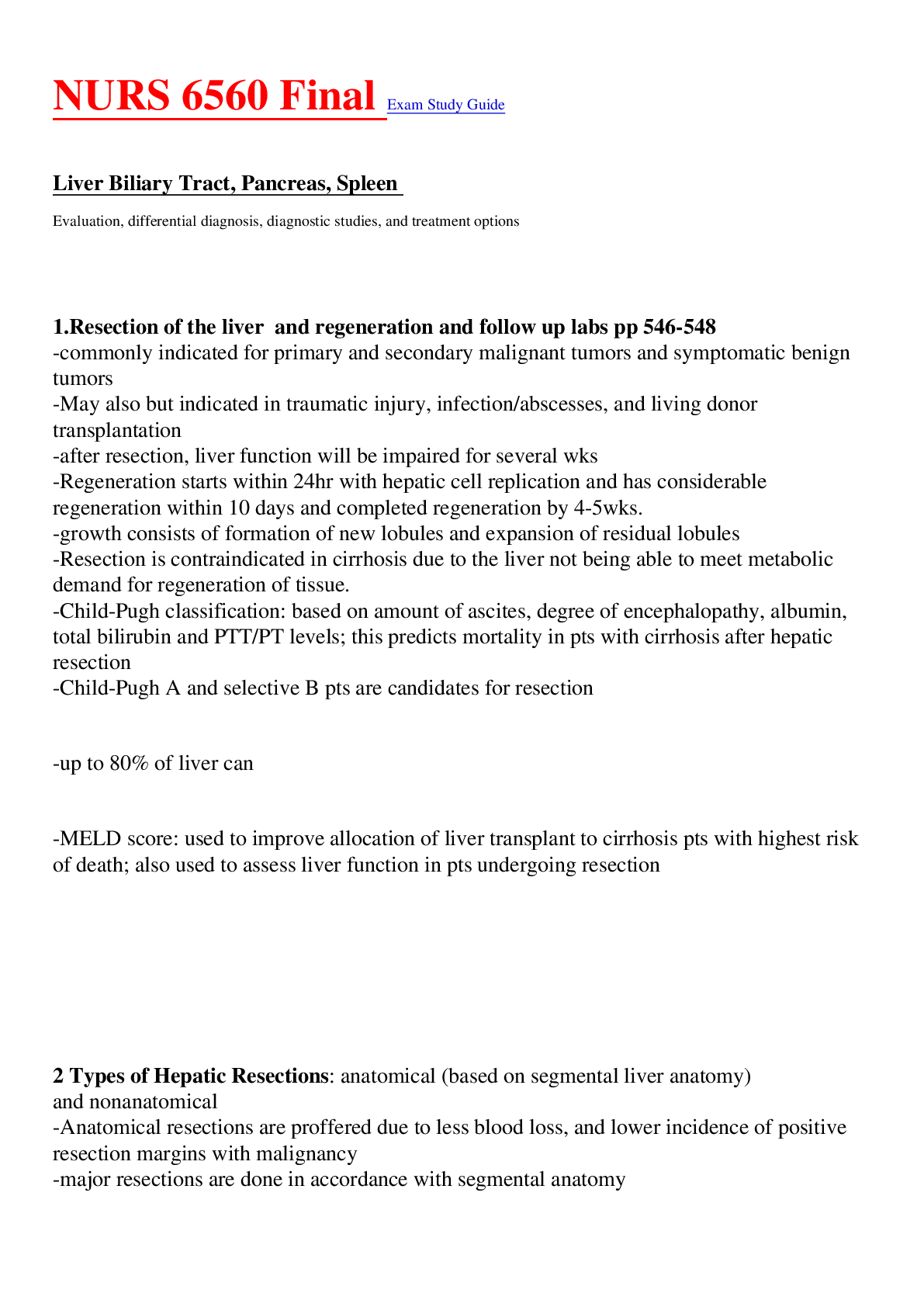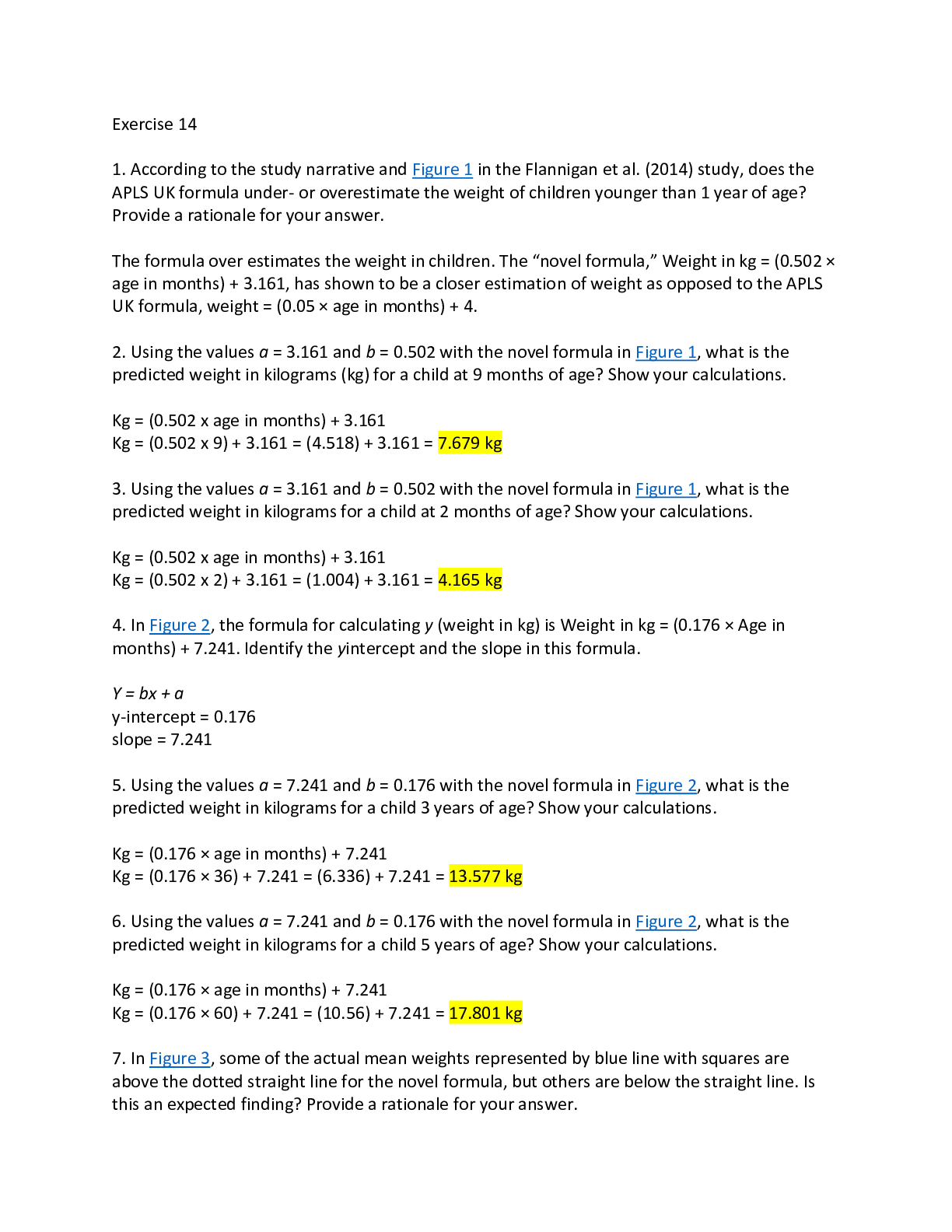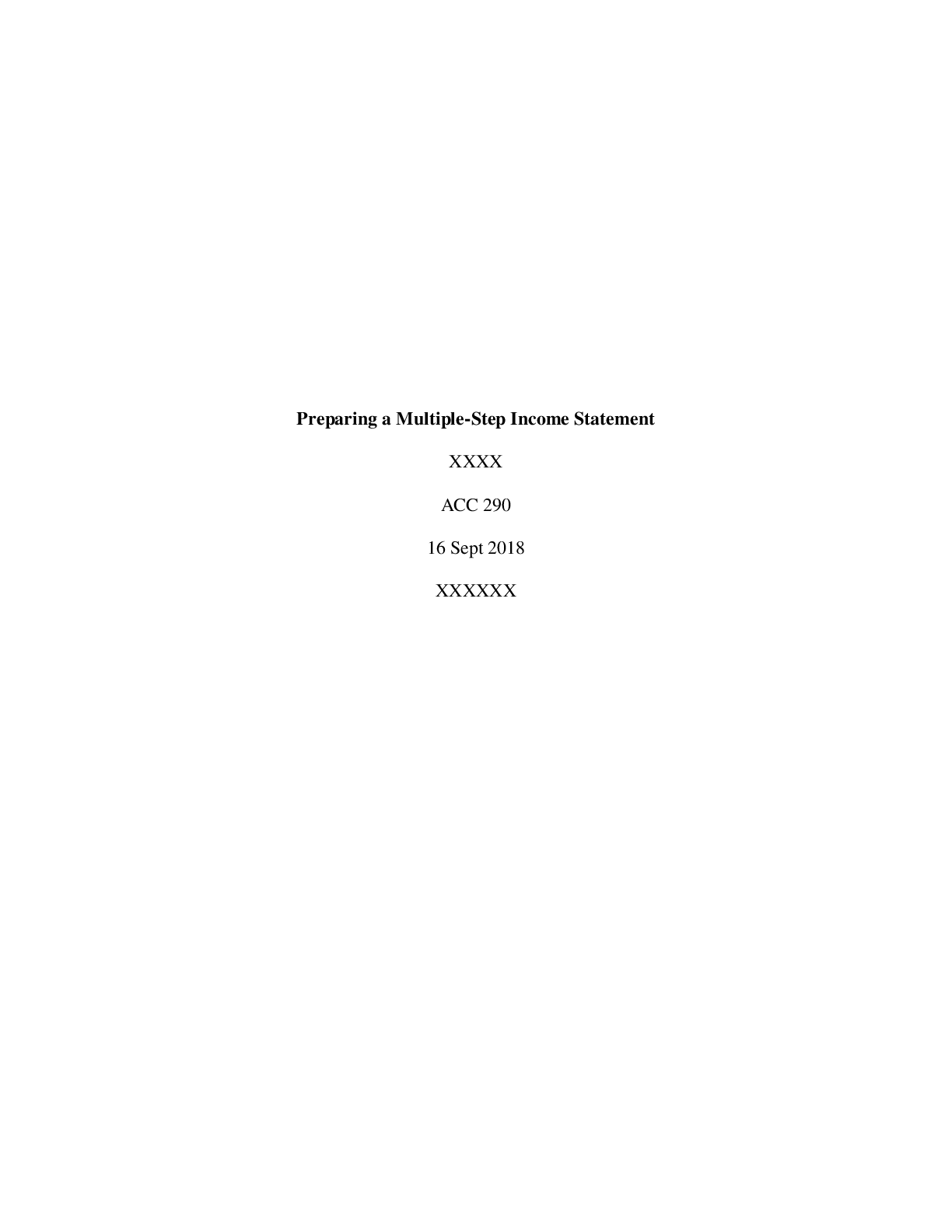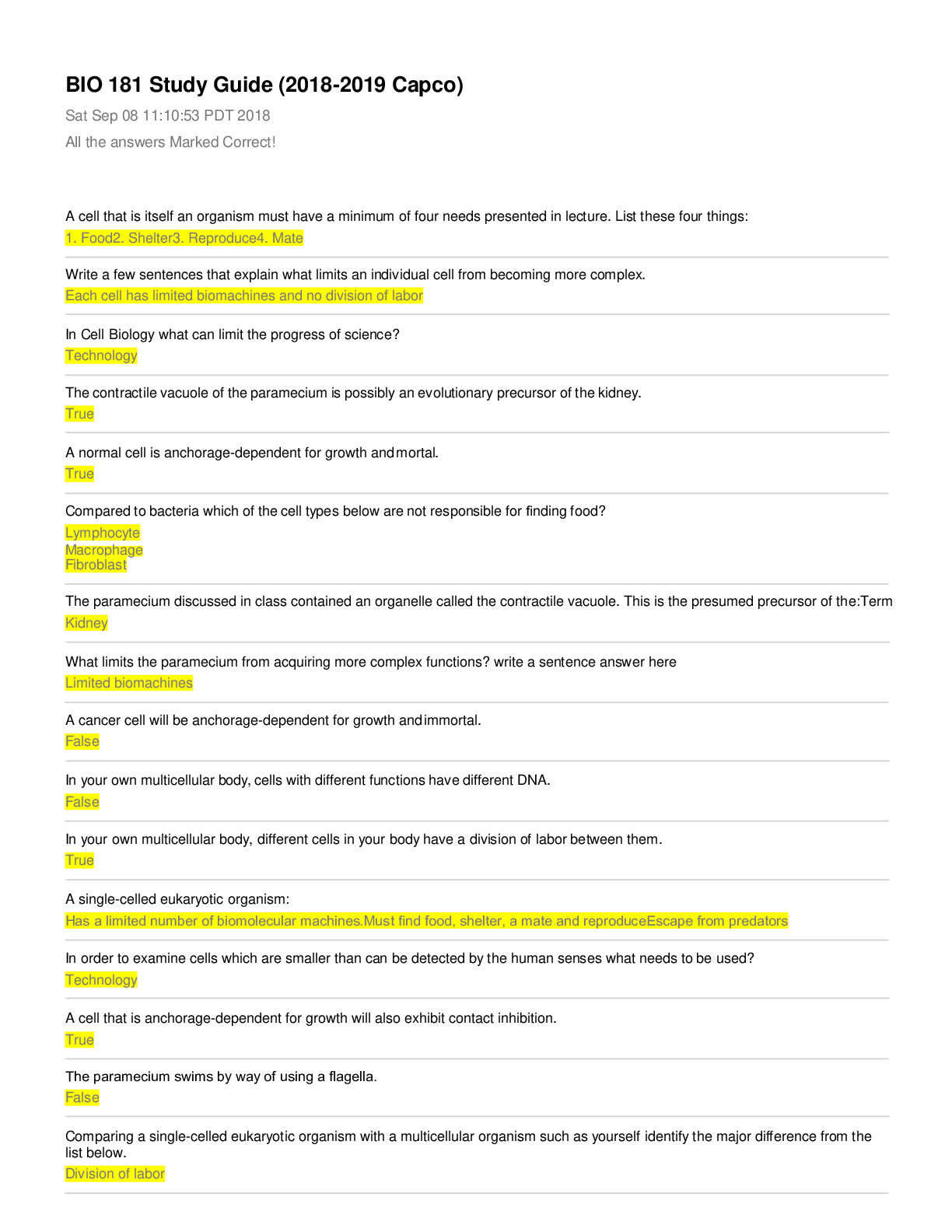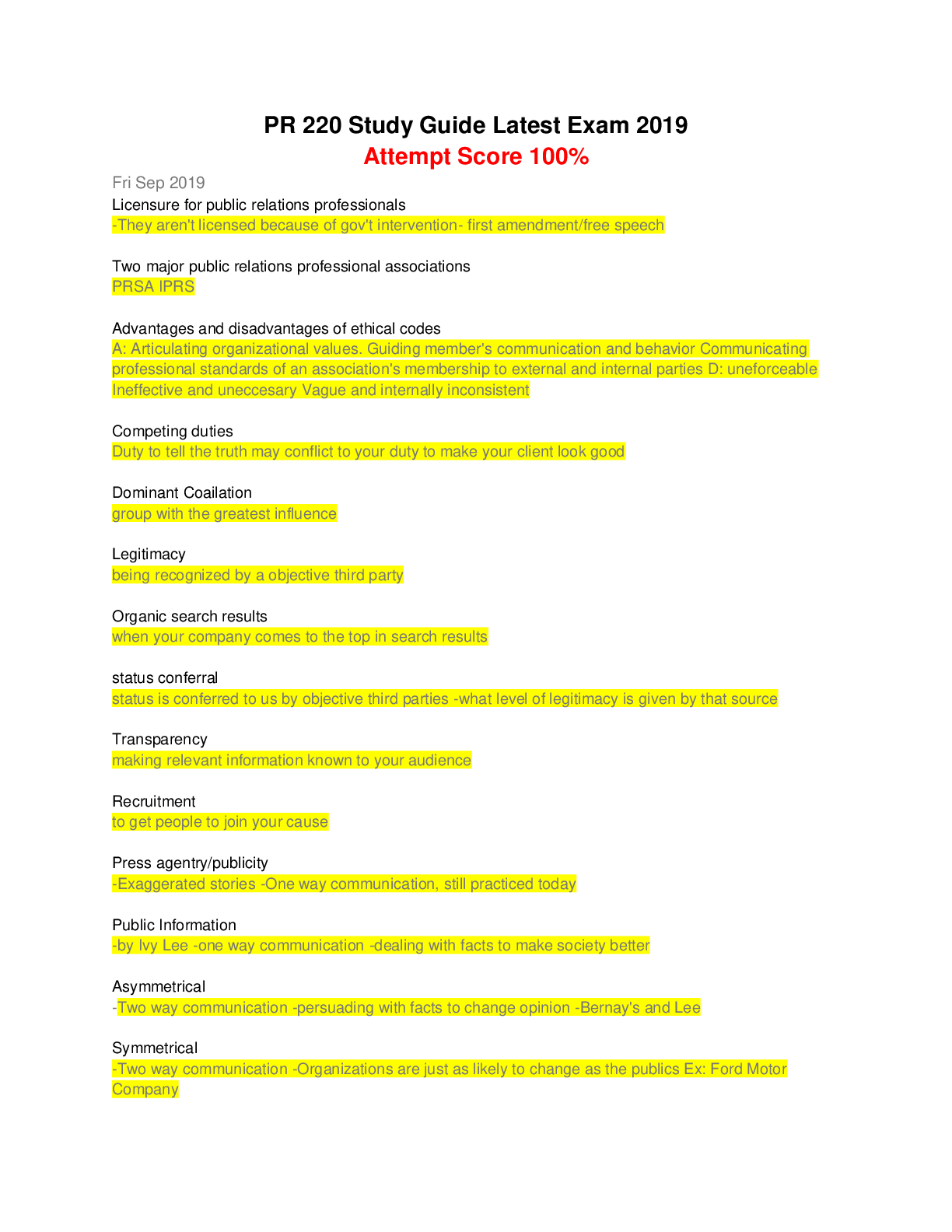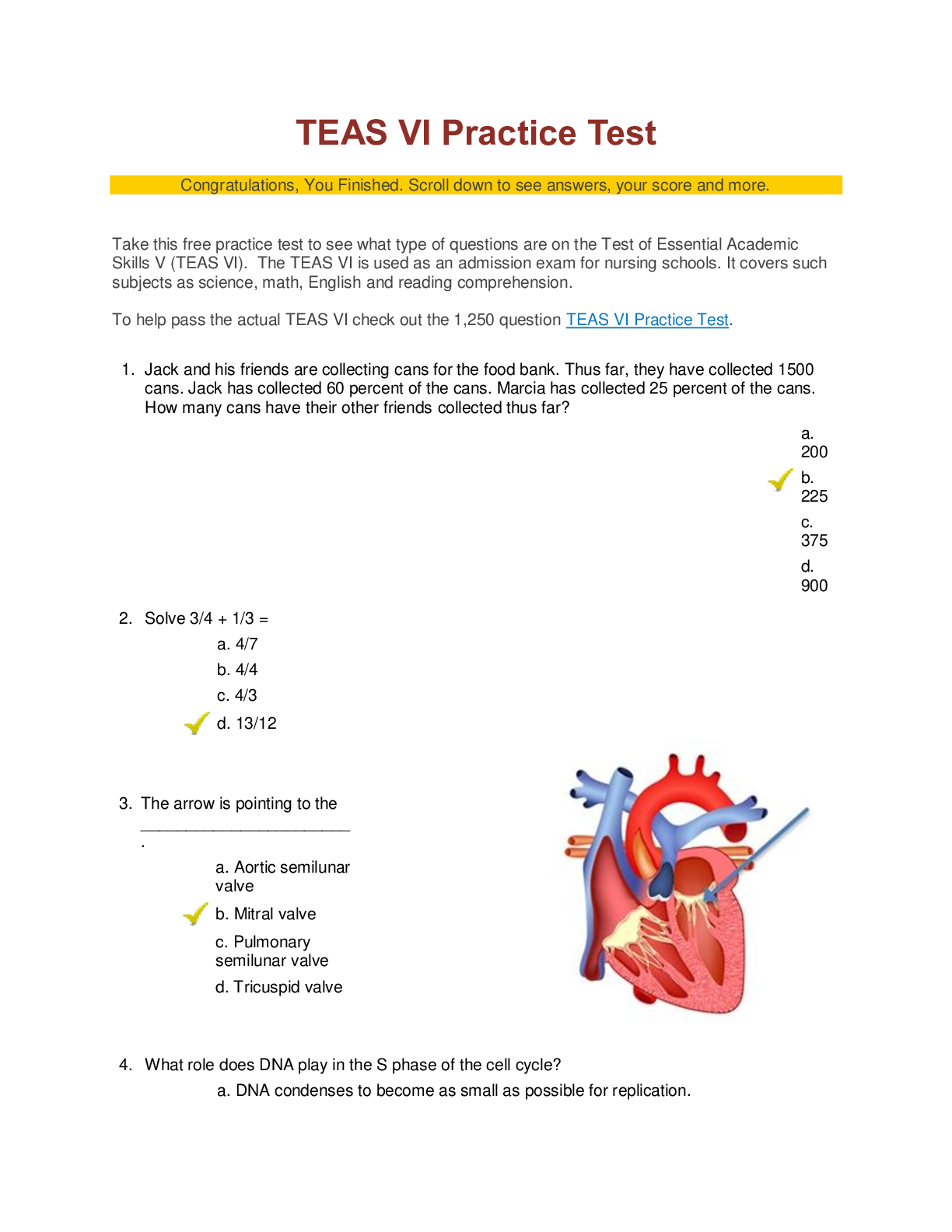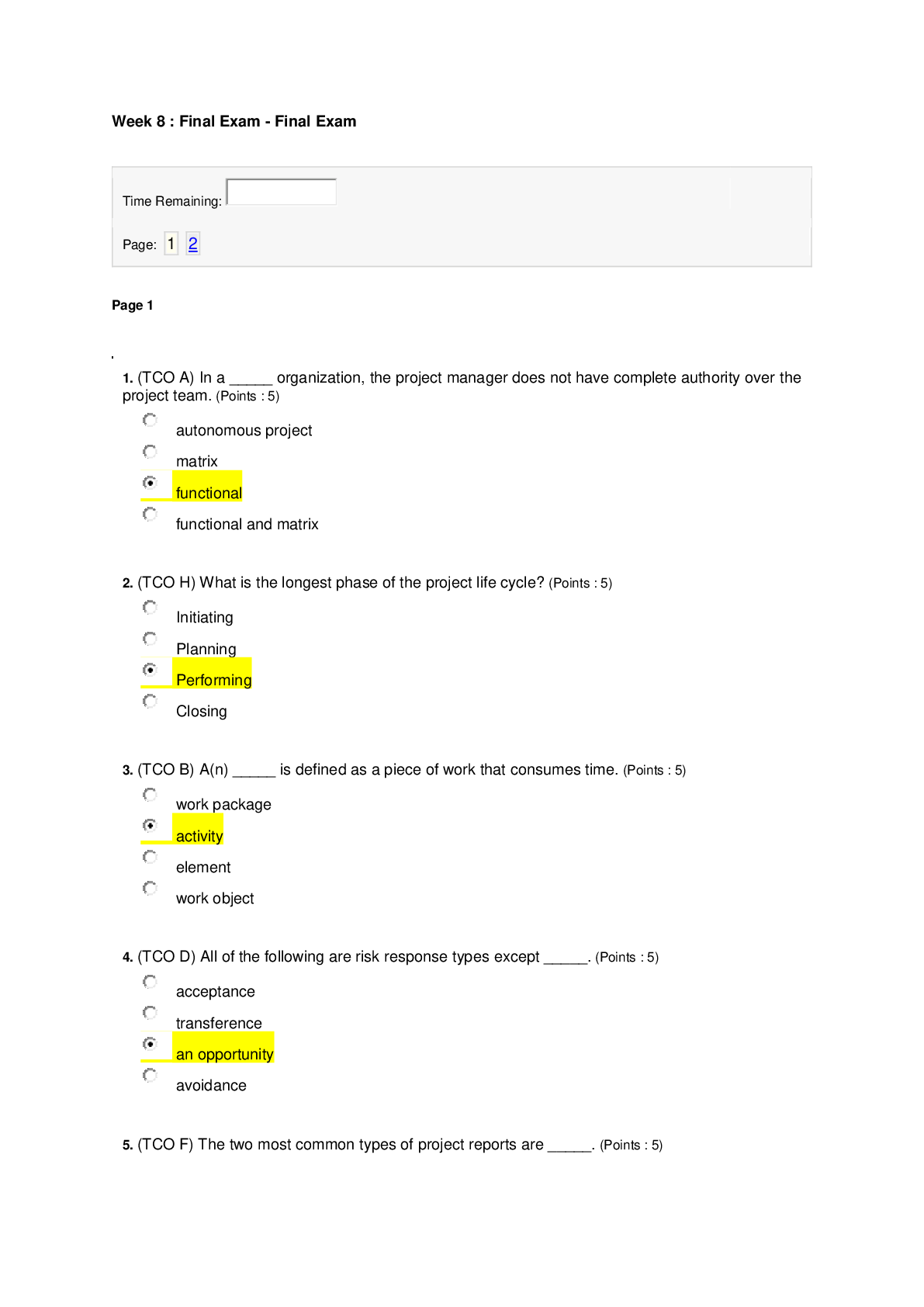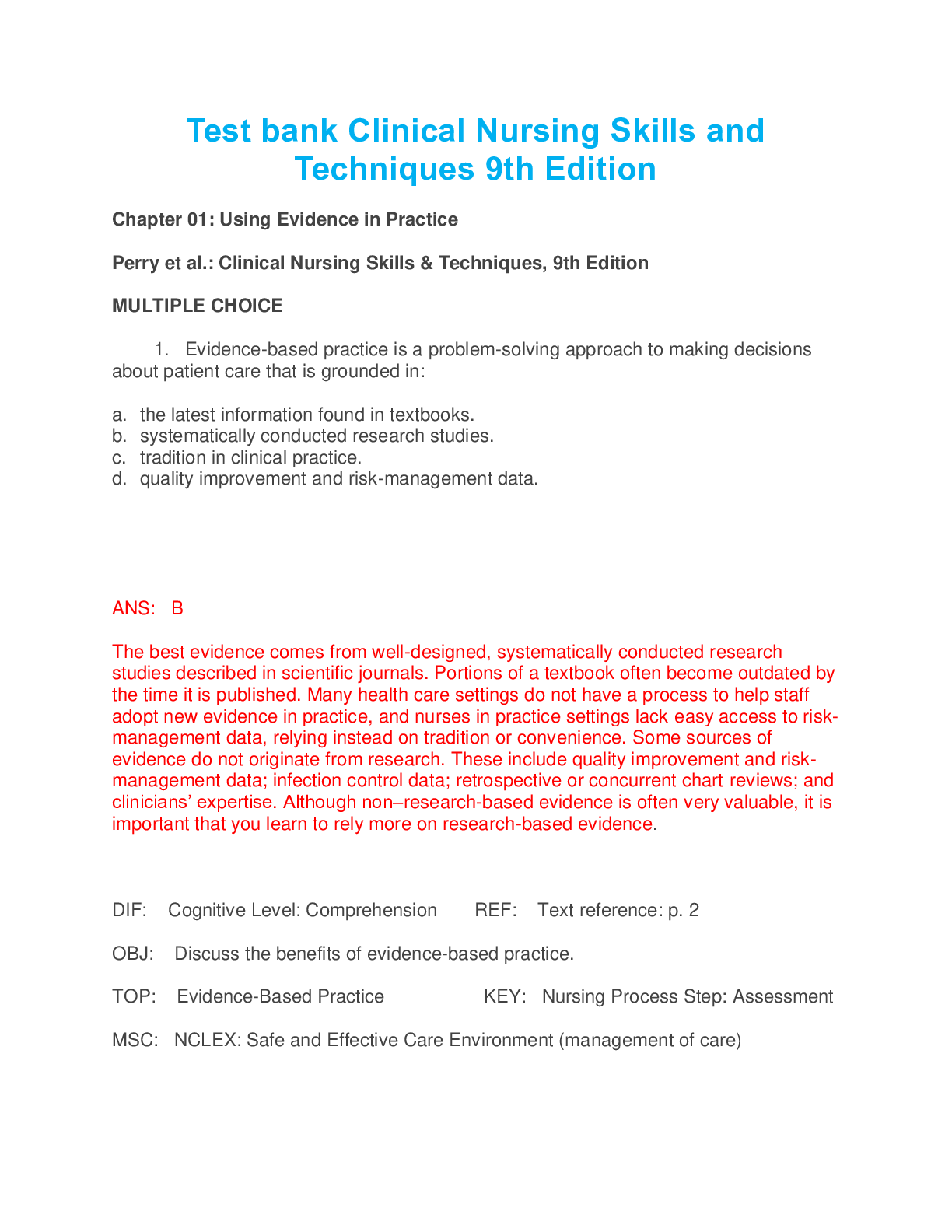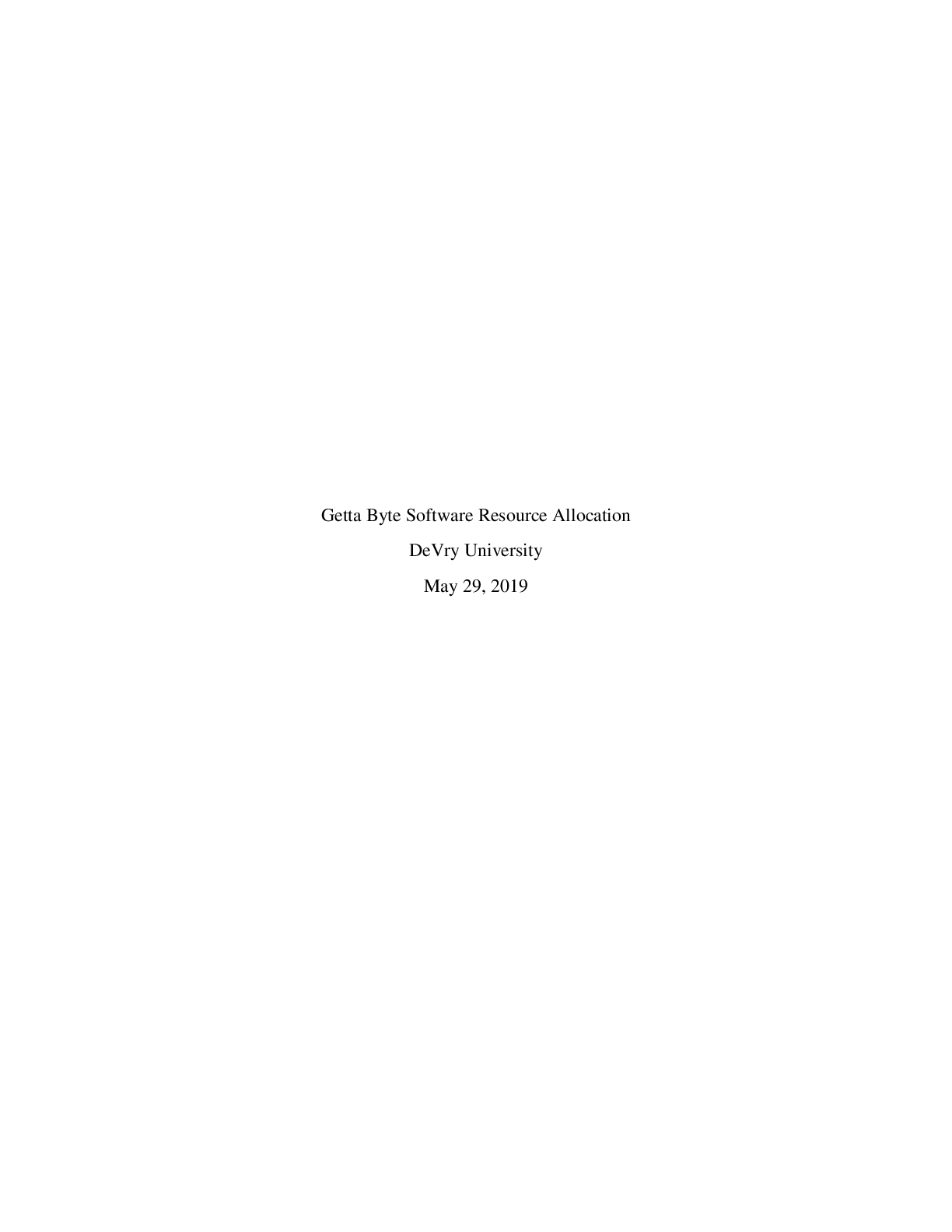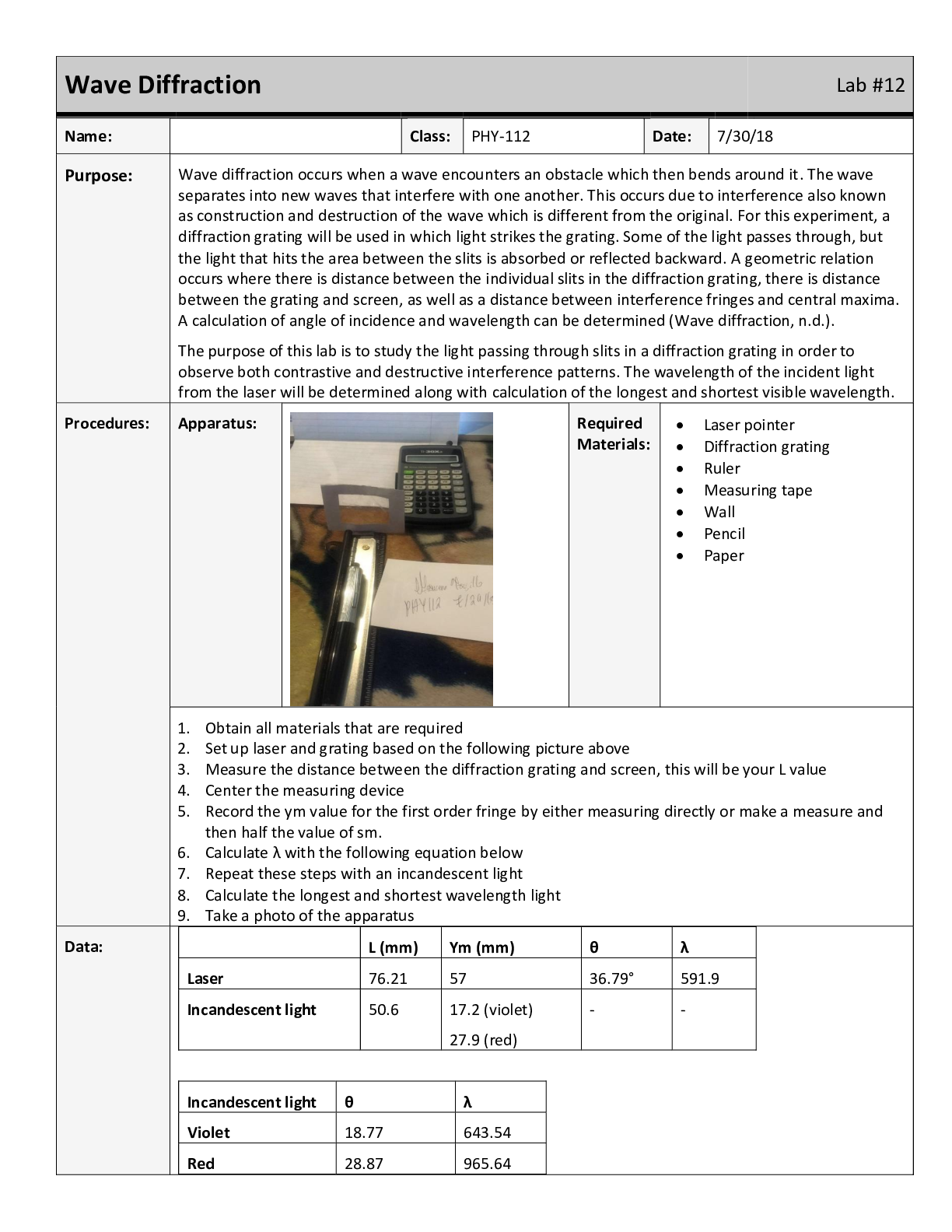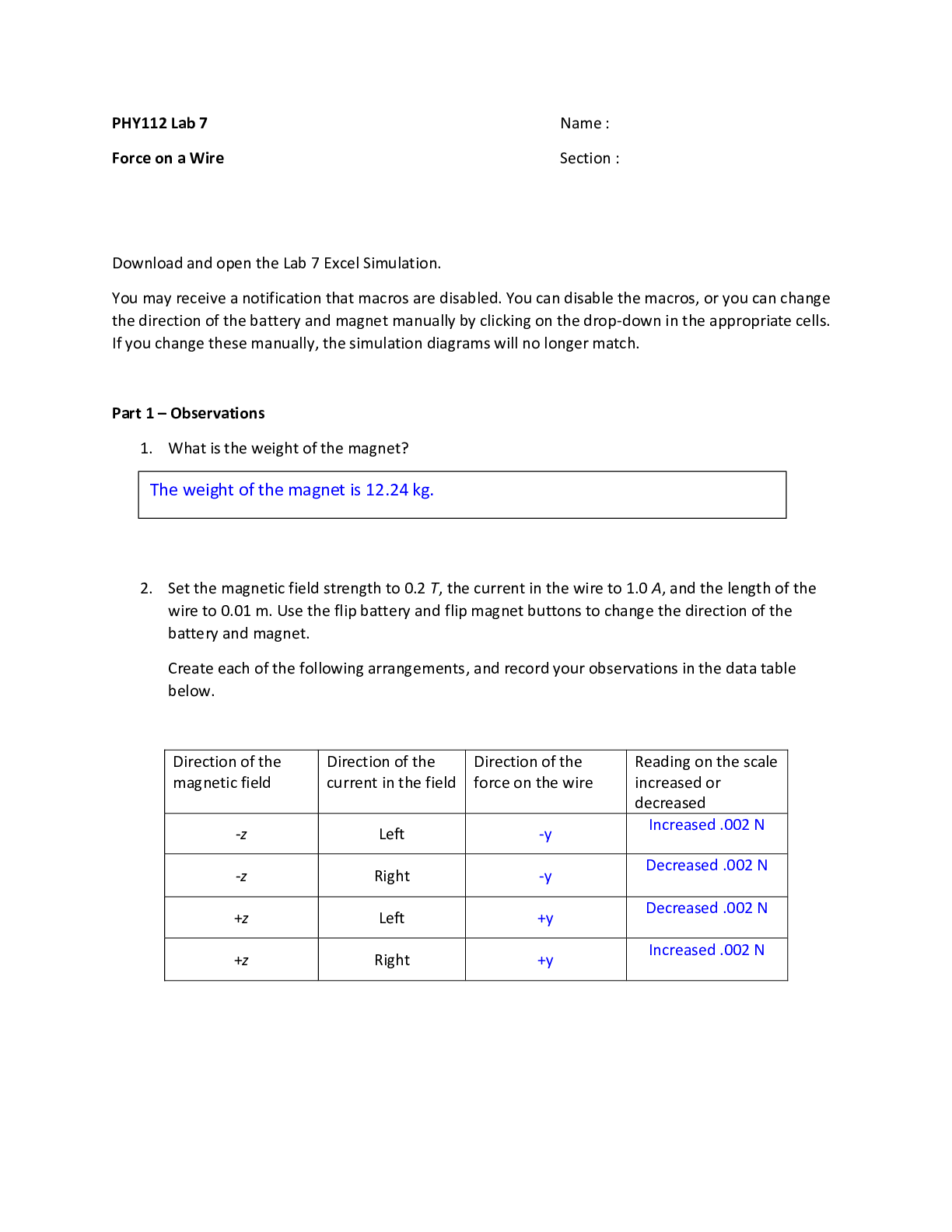Pharmacology > STUDY GUIDE > study guide (All)
study guide
Document Content and Description Below
NR-291 Pharmacology I Study Guide – Exam 2 Effects of the Peripheral Vascular System • Cholinergic – Parasympathetic Nervous System (feed and breed; rest and digest) o Cholinergic effects... (SLUD) Salivation, Lacrimation, Urination, Defecation o Anticholinergic effects (Mad as a Hatter) Hyperthermia, blindness, confused, dry mouth, urinary retention, shaking, grabbing invisible objects, tachycardia, absent bowel sounds, flushed skin, mydriasis • Adrenergic – Sympathetic Nervous System (fight or flight) o Alpha effects Vasoconstriction (treat hypotension), CNS stimulation, relaxation of GI smooth muscles (decreased motility), constriction of bladder sphincter, contraction of pupillary muscles of the eye (dilated pupils), contraction of uterus, male ejaculation o Beta1 and Beta2 effects 1 – increased force of contraction (positive inotropic effect). Increased HR (positive chronotropic effect), increased conduction through AV node (positive dromotropic effect) 2 – bronchodilation (relaxation of the bronchi), glycogenolysis in the liver, increased renin secretion in the kidneys, relaxation of GI smooth muscles (decreased motility), uterine relaxation, inhibits histamine release from mast cells, increases intraocular pressure o Dopaminergic effects Vasodilation (resulting in increased blood flow) to: renal (diuresis), mesenteric, coronary (increase CO and contractility without increasing HR), cerebral Chapter 36: Antihistamines, Decongestants, Antitussives, and Expectorants • Know and apply pharmacology treatment for the common cold o Combination use of: antihistamines, nasal decongestants, antitussives, expectorants o Treatment is symptomatic only, not curative o Treatment is empiric therapy • Antihistamines (-dine) (-iramine) (-tadine) o Know and apply common uses of H1 versus H2 blockers or antagonists H1 – relief of allergy symptoms, treat non-allergy conditions (insomnia, motion sickness, Parkinson-like reactions due to anticholinergic effects) H2 – reduce gastric acid , gastric and duodenal ulcer, GERD, acid indigestion, heartburn o Nice to know: Adv Eff – dry mouth, difficulty urinating, constipation, mild drowsiness to deep sleep, changes in vision o Good to know: Due to Adv Eff, use with caution in pts with – HTN, angina, MI, Asthma or COPD, hyperthyroidism, peptic ulcer disease (antihistamines stimulate gastric acid secretion), BPH or urinary retention Antihistamines appear on Beers List (geriatric clients at risk for orthostatic hypotension) o Got to know: Pt education: report excessive sedation, confusion or hypo/hypertension, avoid driving or operating heavy machinery, advise againse consuming alcohol or other CNS depressant Contraindicated in glaucoma (angle-closure) – due to anticholinergic properties Diphenhydramine has multiple uses and is often combined with many other OTC meds o Diphendydramine o Cimetidine • Decongestants o Vasoconstrict blood vessels of the nose, throat and paranasal sinus, decreases inflammation and mucous formation o Good to know: Oral (adrenergics) – prolonged decongestant effects but delayed onset, less potent than topical, no rebound congestion Pt education – avoid caffeine, report a fever, cough, or other symptoms lasting longer than a week o Got to know: Topical or nasal adrenergics – prompt onset, rapid absorption, rapid decline in therapeutic activity, potent, sustained use over several days causes rebound congestion making the condition worse (cause overuse and dependency) Avoid or consult with prescriber – HTN, palpitations, BPH o Oral – pseudooephedrine o Intranasal – phenylephrine, fluticasone, ipratropium • Antitussives – only for nonproductive coughs o Opioid – codeine Suppress the cough reflex by direct action on the cough center in the medulla o Nonopioids – benzonatate, dextromethorphan Suppress the cough reflex by numbing the stretch receptors in the respiratory tract and preventing the cough reflex from being stimulated\ o Good to know: Report any of the following symptoms to the caregiver: cough that lasts more than a week (possible CHF), a persistent headache, fever, rash o Got to know: Antitussive drugs are for nonproductive coughs only! • Expectorants o Irritates GI tract which causes a loosening and thinning of respiratory tract secretions o Guaifensin o Good to know: Report a fever, cough, or other symptoms lasting longer than a week o Got to know: Pt education – encourage more fluids, if permitted, to help loosen and liquefy secretions [Show More]
Last updated: 1 year ago
Preview 1 out of 11 pages
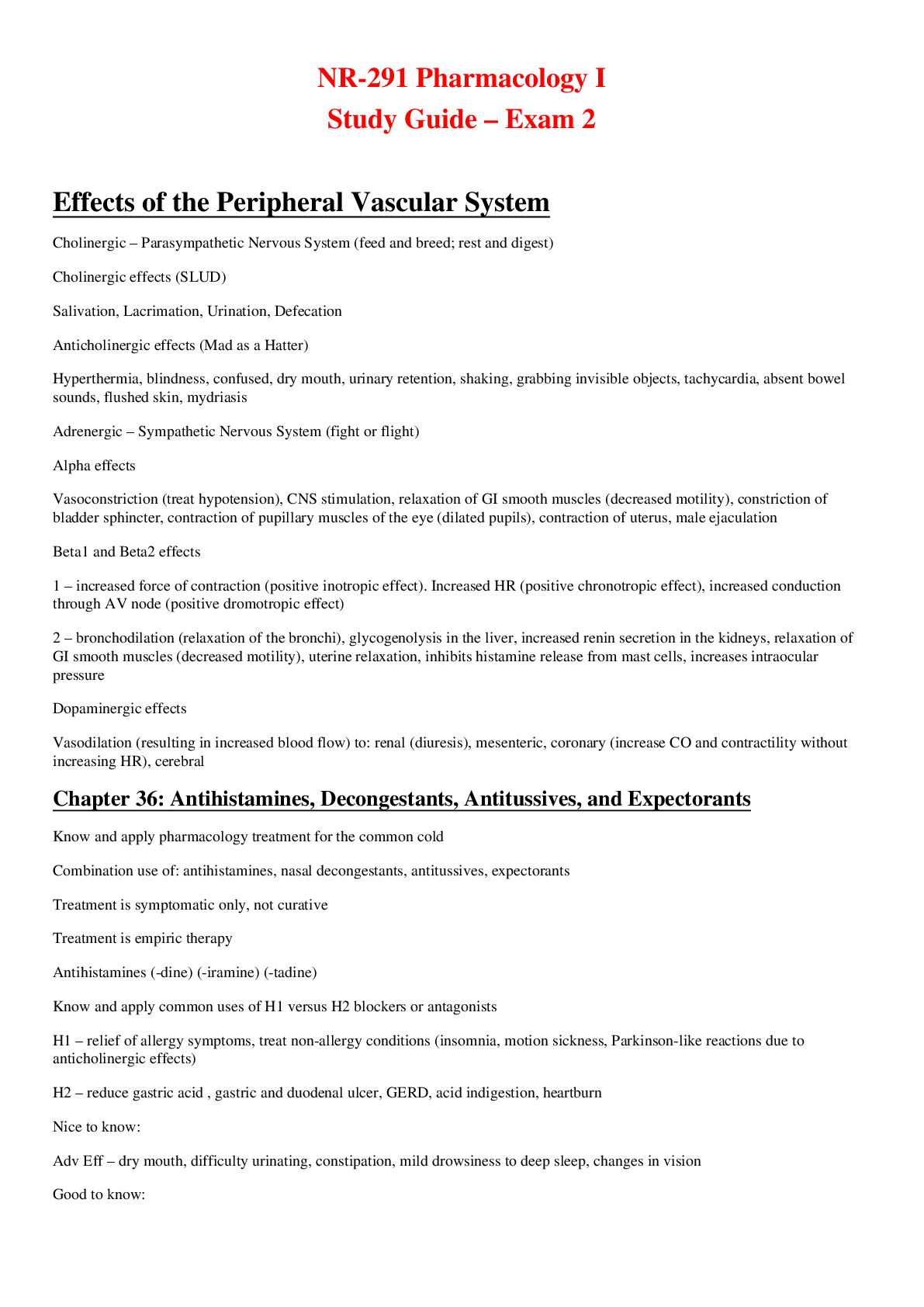
Buy this document to get the full access instantly
Instant Download Access after purchase
Add to cartInstant download
We Accept:

Reviews( 0 )
$13.50
Document information
Connected school, study & course
About the document
Uploaded On
Mar 06, 2021
Number of pages
11
Written in
Additional information
This document has been written for:
Uploaded
Mar 06, 2021
Downloads
0
Views
49

